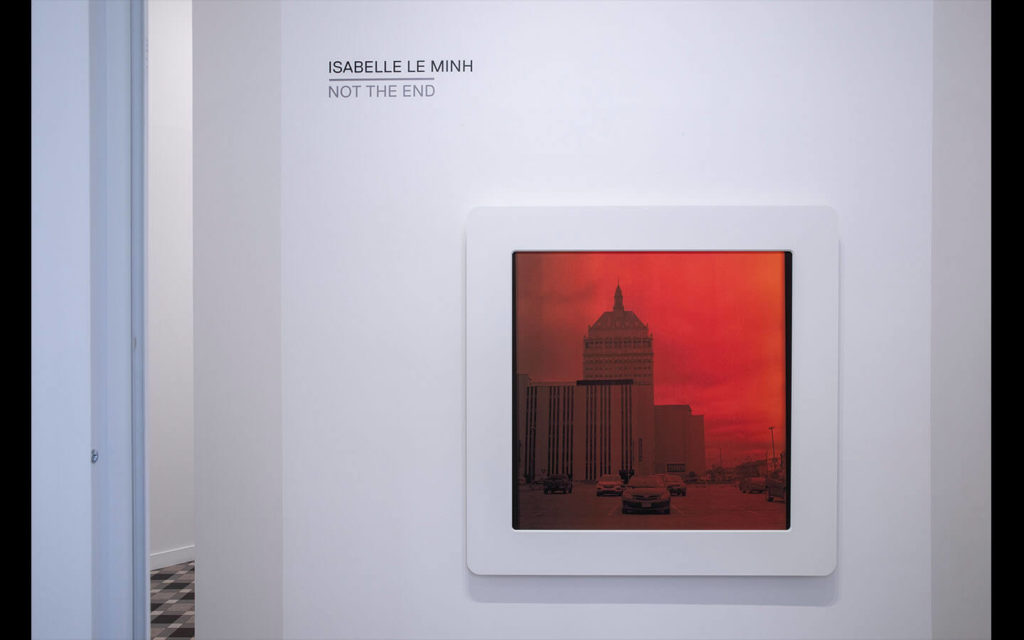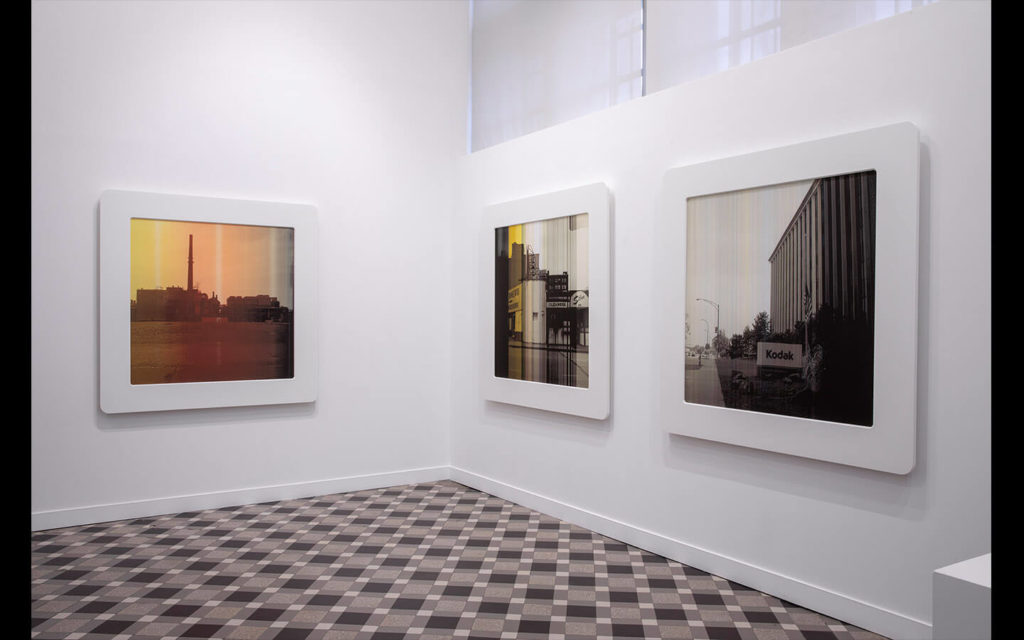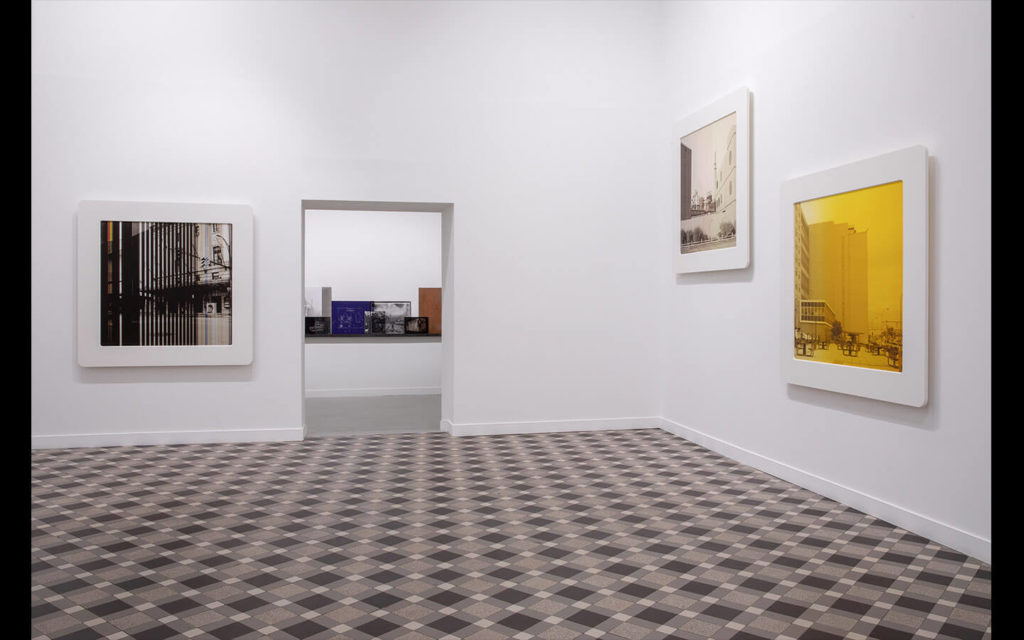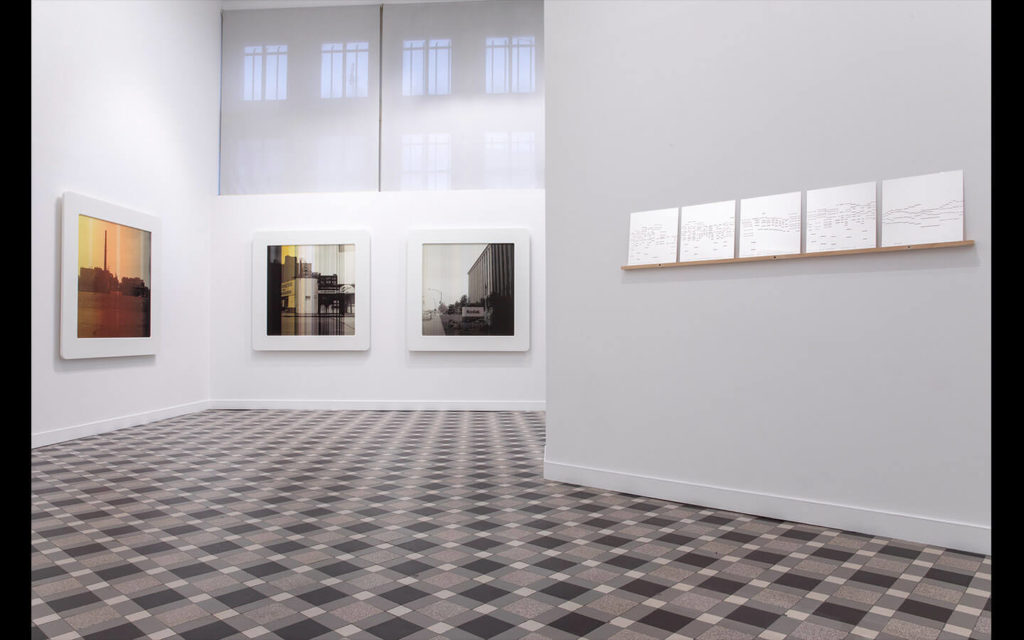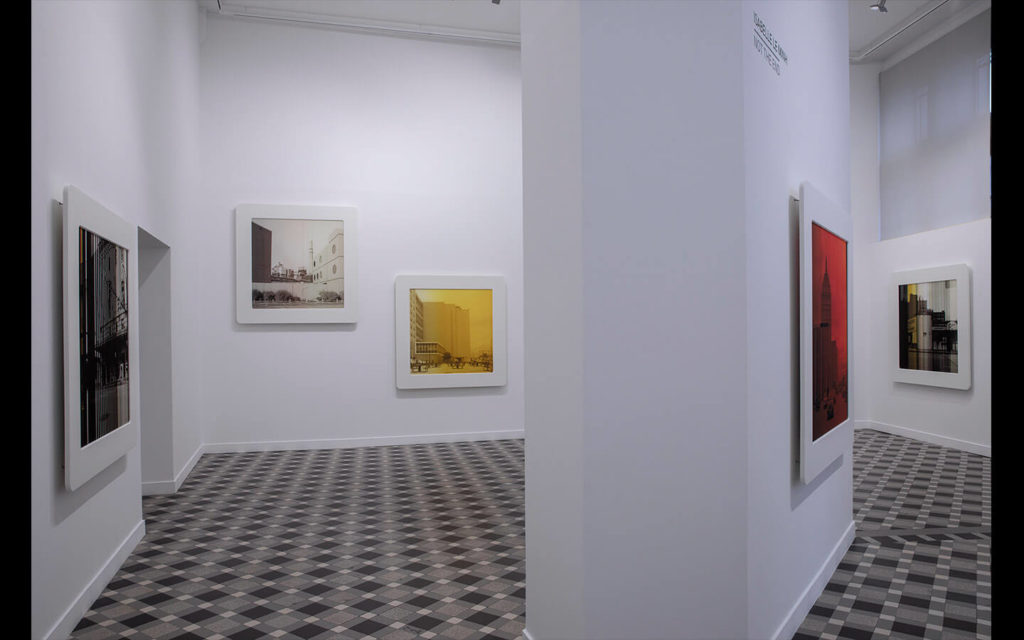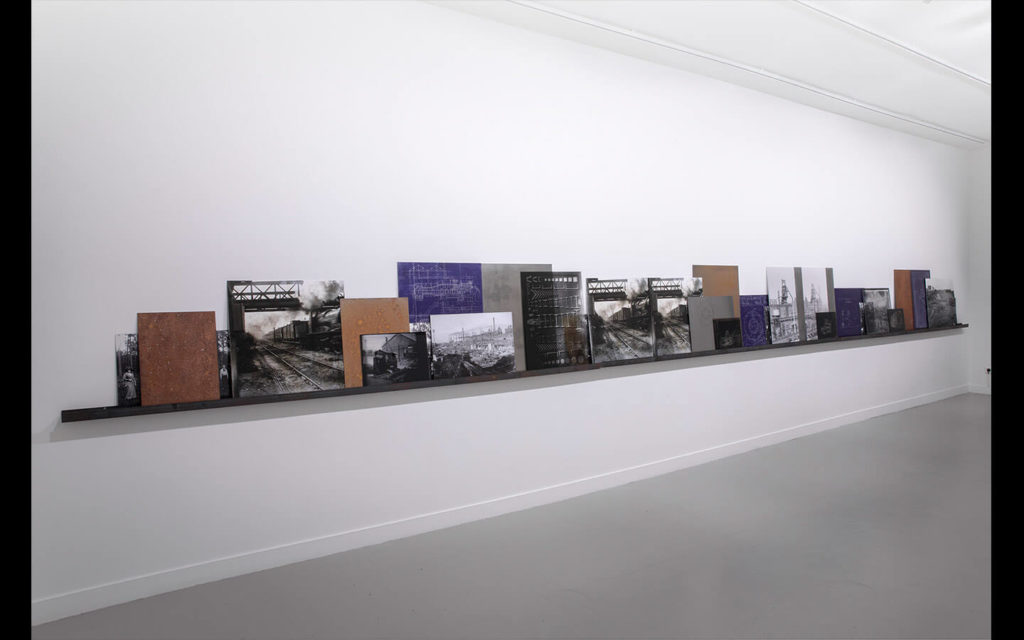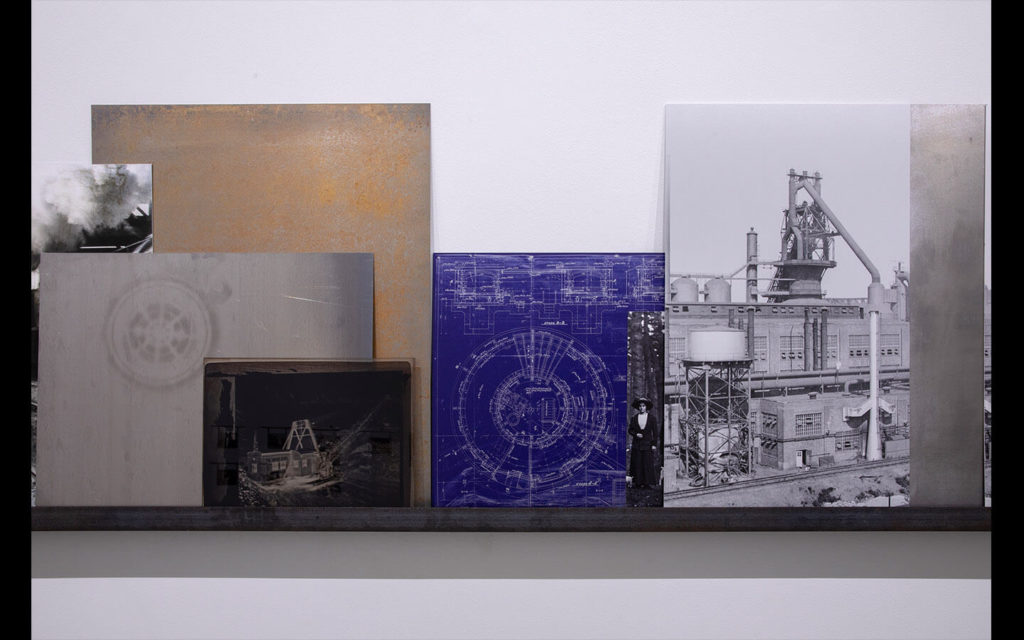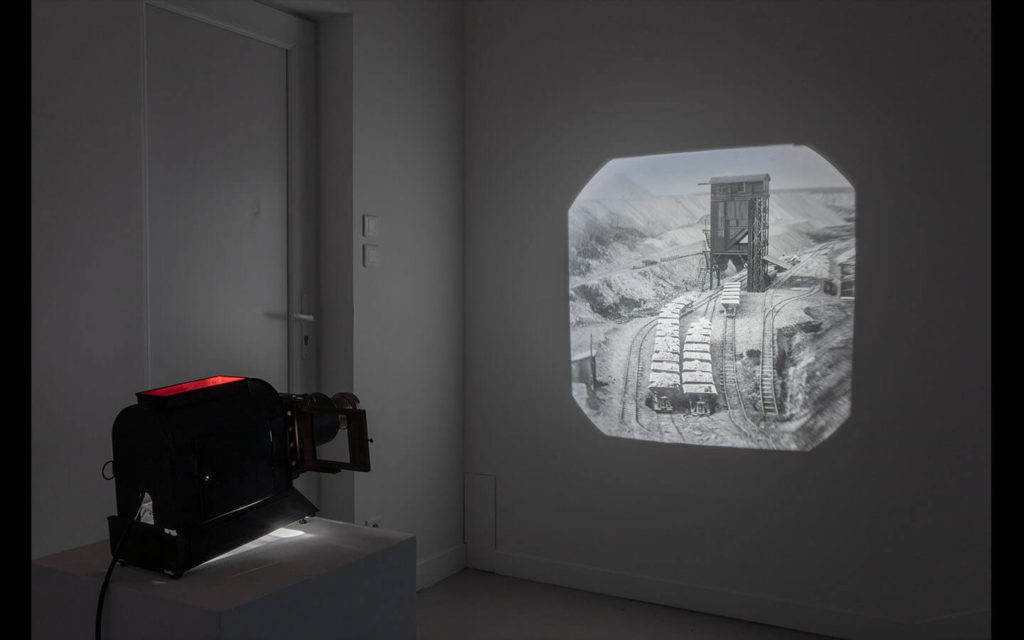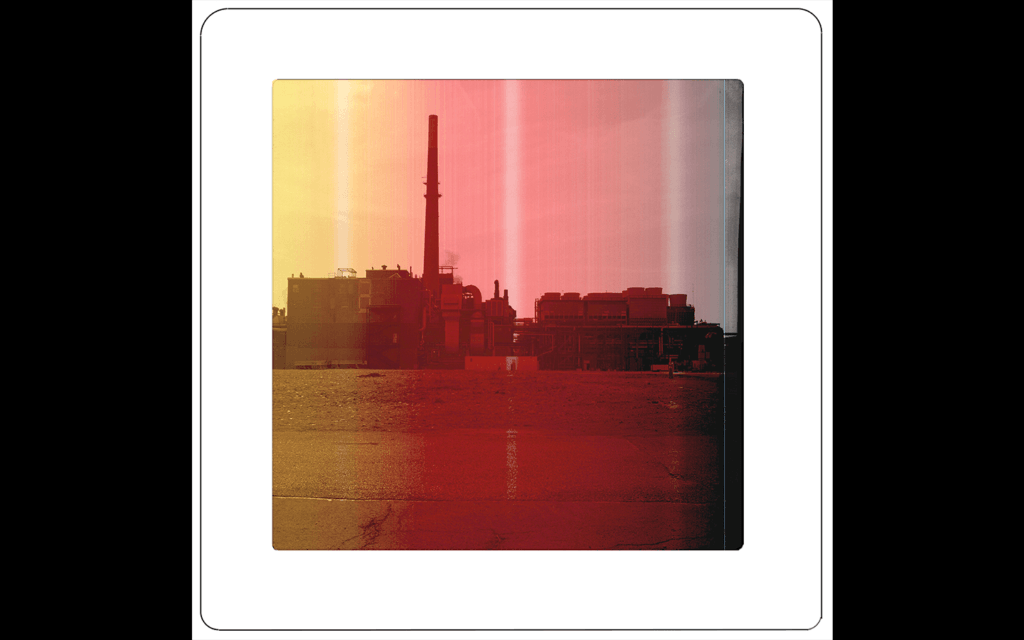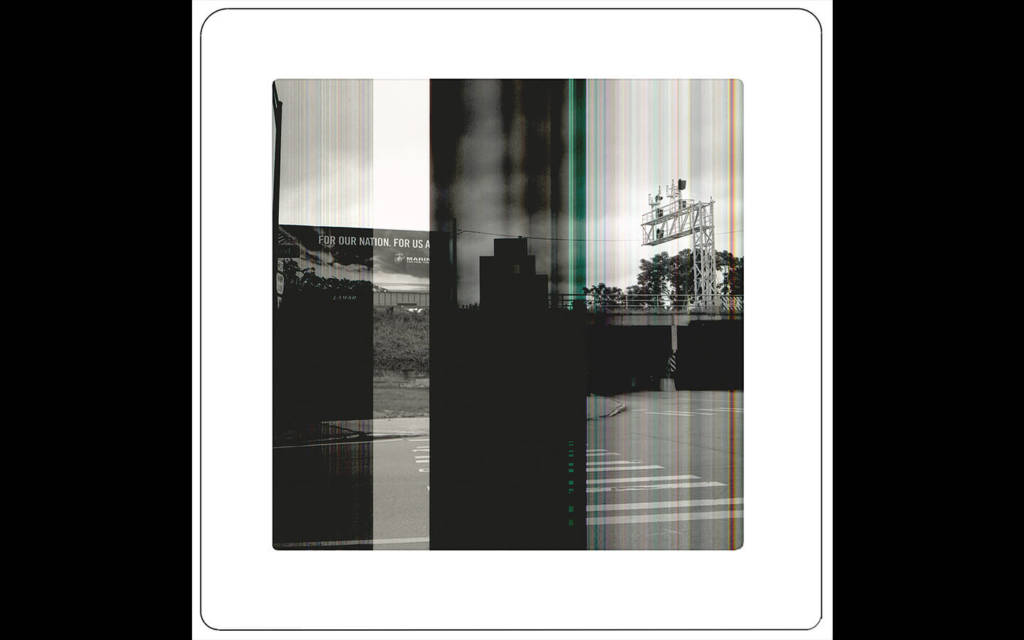Isabelle Le Minh, who obtained a degree in engineering before attending the National School of Photography in Arles, has from her earliest works placed the history of photography at the heart of her artistic practice: she revisits historic processes and emblematic figures and questions the technical and theoretical evolution of the medium. Her various approaches – distortion of meaning, tautology, pseudo appropriation – testify to her erudition as well as her humor.
Recently, Le Minh visited Rochester, historic seat of George Eastman’s Kodak company. This celebrated trademark, swept away by new technologies, belongs to an era now referred to as pre-digital. Stripped of all but a few remaining factories, Rochester bears the stigmata of this decline. But the phantom of the inventor continues to hover over it: the urban views of Le Minh’s series Traumachrome, initially produced with analog film in black-and-white, were charged with a spectral presence in the course of their digitalization. Saturated in color – the very colors which constituted the glory of the Kodachrome process – her images are mysteriously hatched by vertical bars, recalling the technical accidents which, in early photography, nourished the superstitions of spiritists.
The dereliction of Rochester echoes the process of de-industrialization that affected many cities in the north of France – as witnessed by the closing of Usinor, near Douchy-les-Mines. In a trove of photographs documenting the factory in operation, discovered on-site and later conserved by the CRP/, another genius loci makes itself felt. At the invitation of CRP/, Le Minh has mined this archive to create a new work that refers to Usinor’s history of steel production.
Sonia Voss, art critic
